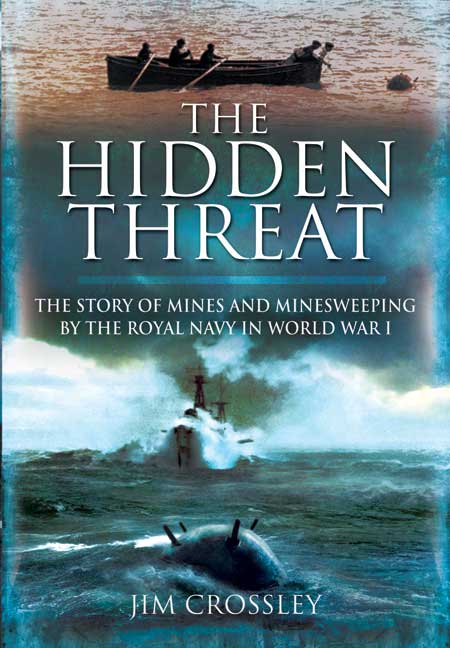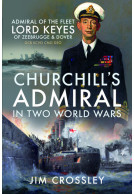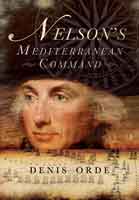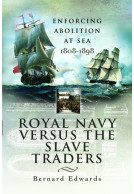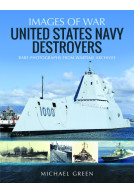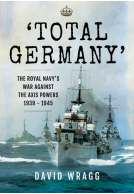The Hidden Threat (Hardback)
Mines and Minesweeping in WW1
Imprint: Pen & Sword Maritime
Pages: 168
ISBN: 9781848842724
Published: 18th July 2011
(click here for international delivery rates)
Need a currency converter? Check XE.com for live rates
| Other formats available - Buy the Hardback and get the eBook for free! | Price |
|---|---|
| The Hidden Threat ePub (3.3 MB) Add to Basket | £6.99 |
It is not widely appreciated that mines were by far the most effective weapon deployed
by Germany against the Royal Navy in WW1. They cost Britain five battleships, three cruisers, twenty-two destroyers, four submarines and a host of other vessels.
Mines were generally combated by a civilian force that sailed in a variety of commandeered vessels such as fishing boats and paddle steamers. This unlikely armada saved the day for Britain and her allies. After 1916 submarine attacks on merchant ships became an even more serious threat to Allied communications but enemy submarines were far less damaging to British warships than mines. Whereas in 1914 the Admiralty rather scoffed at mine laying as a sneaky un-British form of sea warfare, by the later stages of the war the Royal Navy learnt to use mines as a primary anti U boat weapon, developing an amazing variety of mined obsticles and mine laying vessels.
As featured in
Navy Today, June 2016, issue 200
Valuable coverage of the development of sea mine warfare during the Great War.
The Long, Long Trail
The text is interspersed with a good number of vivid personal accounts of the mining war.
Warships 2013
It kept my interest throughout and it is worth a read.
Naval Review
An interesting, worthy read.
The Great War Journal- Jan 2012
An intriguing book, well researched and written, which covered a topic that is probably not present in even well stocked bookshelves.
Firetrench.com Oct 2011
About Jim Crossley
Jim Crossley read Modern History at Cambridge. He has had a lifelong interest in naval affairs. He is himself a keen sailor and springs from a family with a long naval tradition. His own father was a midshipman on the battleship Resolution in 1916 and his mother was a cousin of Commodore William Goodenough, one of the central figures in the Jutland battle.
Jim Crossley was nominated for the Maritime Foundation’s Mountbatten Maritime Award for Best Literary Contribution for their book 'Voices From Jutland: A Centenary Commemoration'.







